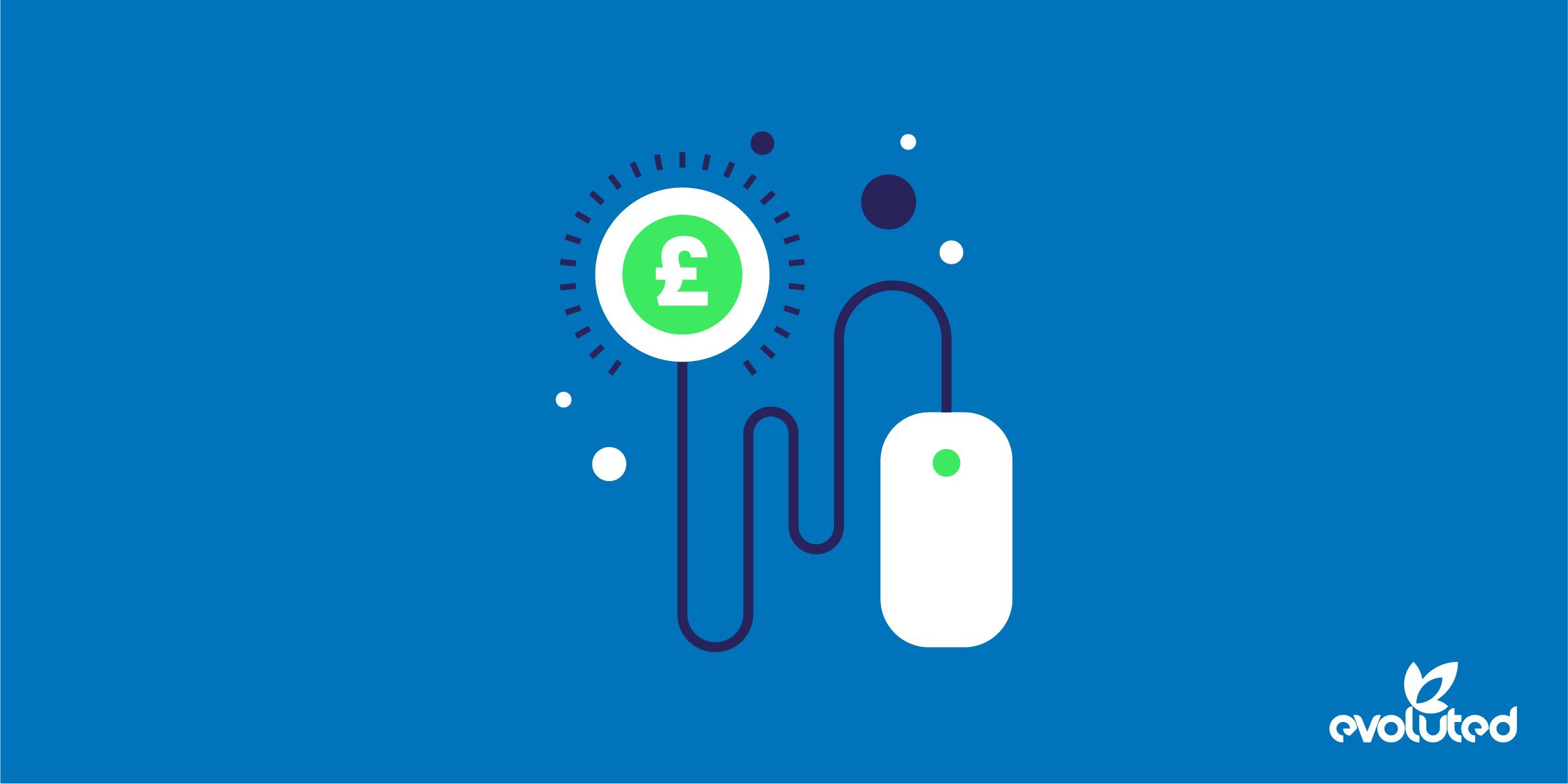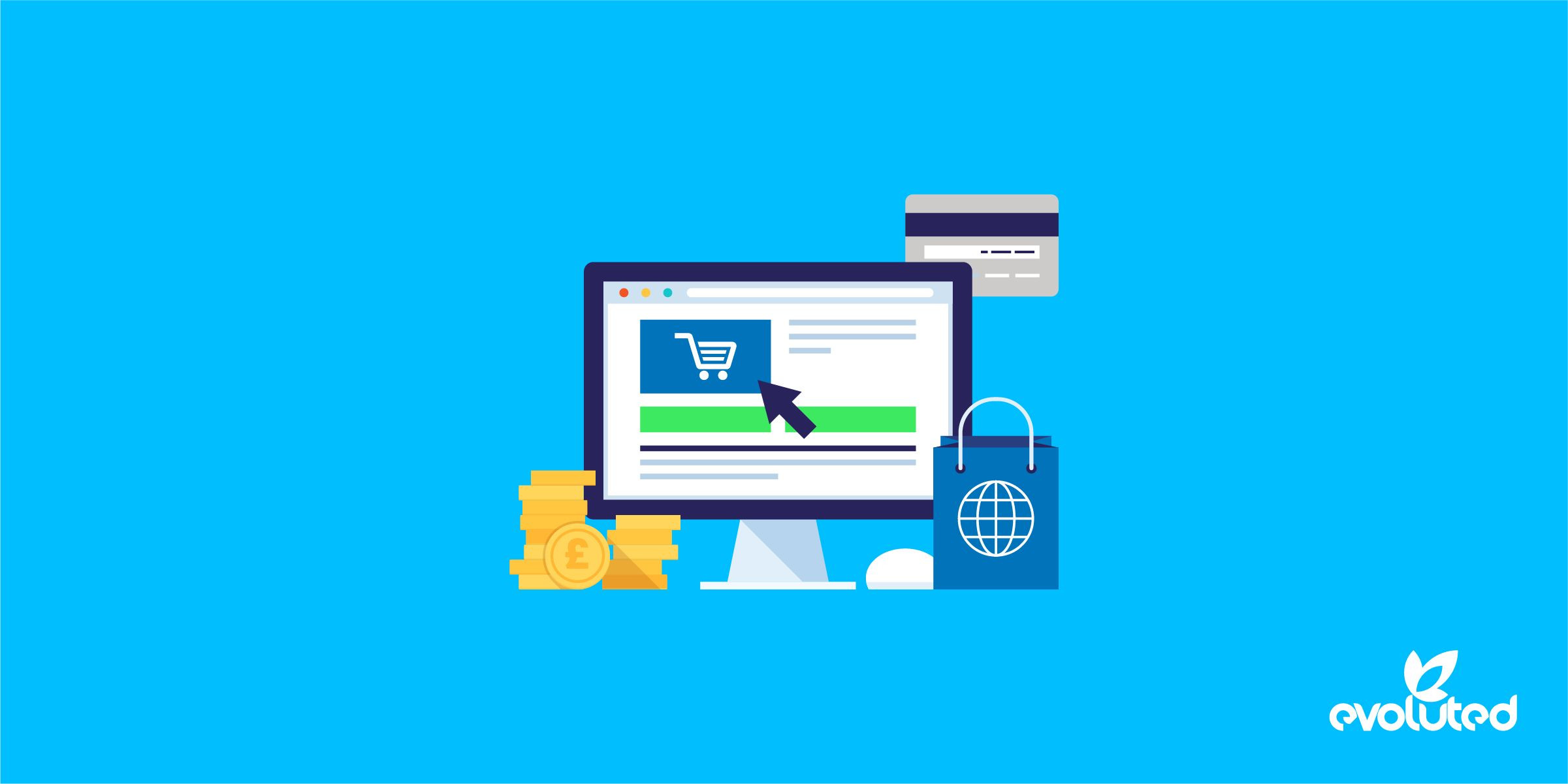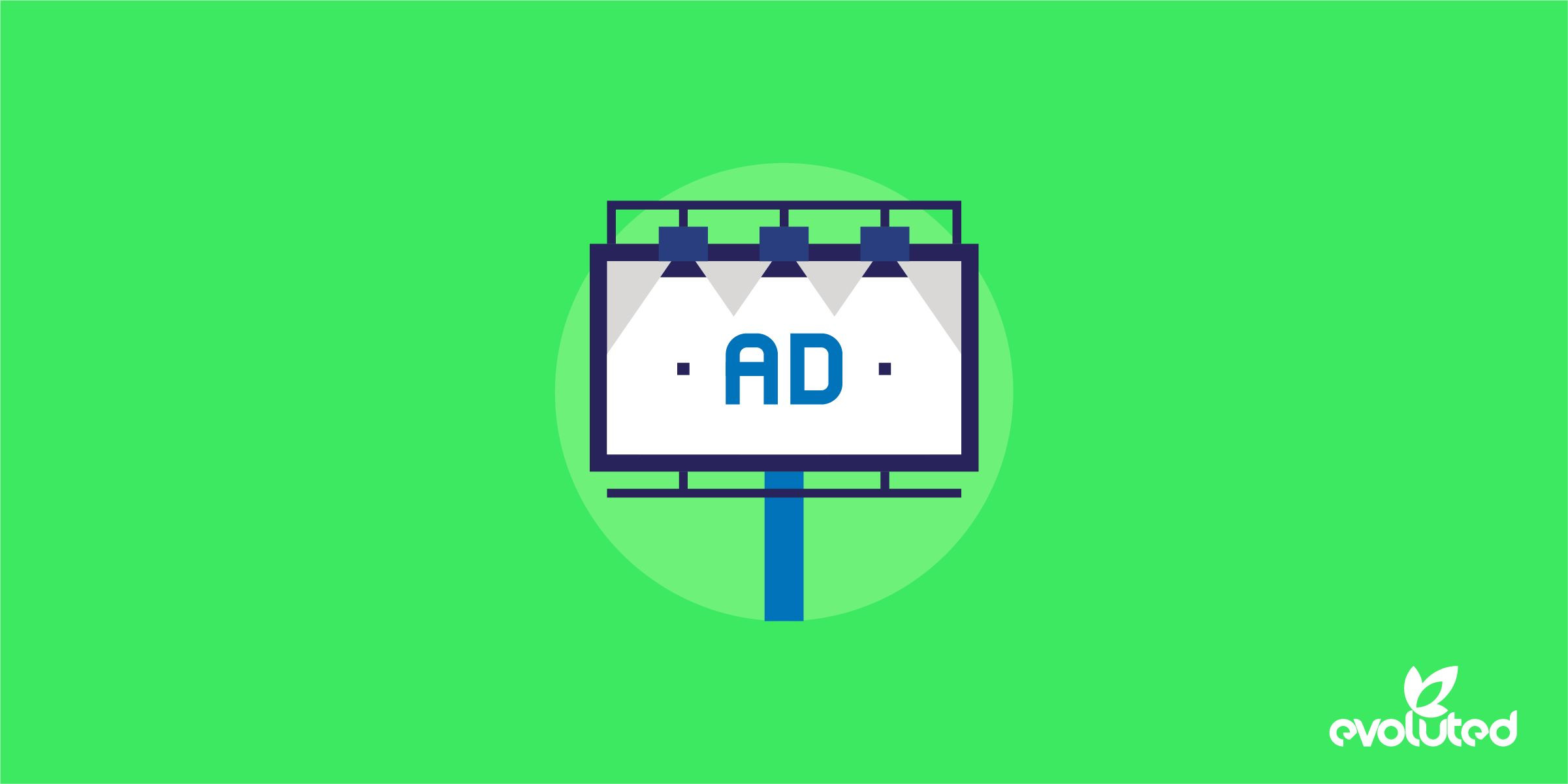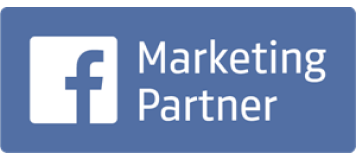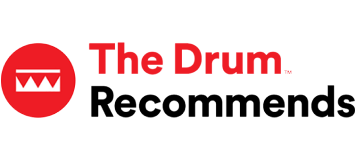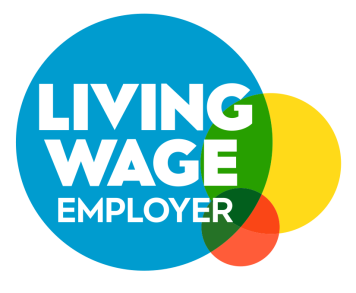Why are clicks becoming more expensive? Understanding CPC inflation in Google Ads
Why are my clicks becoming more expensive?
If you have managed a PPC (Pay-per-Click) campaign over the last few years, you’ll have probably asked this question many times. CPC (Cost-per-Click) is growing in almost every industry, frustrating account managers everywhere – this is sometimes known as CPC Inflation.
This blog will be looking at why your clicks are costing more, what can be done about it, and whether it’s actually something to worry about at all!

What is CPC inflation?
CPC inflation is the gradual increase of average cost-per-click over time when other variables appear to be the same.
It means having to spend more per-click just to maintain your average position or impression share.
Why are clicks costing more?
In Google Ads, your CPC is the result of an auction algorithm which uses multiple variables to determine where your ads are placed, and how much you pay. These include factors such as your quality score, competition, bidding strategy and targeting.
Below are some factors which may be driving your CPC up.
Competition
Google Ads is an auction and, for the most part, it behaves like you would expect one to. The more parties enter into an auction, the higher bids get. While Google Ads/Adwords has been around nearly 2 decades now, it is still gaining more and more users.
You can find out if your competitors are contributing to higher click costs by checking out your Auction Insights. This will tell you how many other advertisers you are competing with for your chosen keywords.
Ads are getting bigger
The advertising space at the top of the page is significantly limited due to the large number of extensions and other ad components that now appear for many ads ranking for the top positions.
Expended Text Ads have been expanded further and now allow for additional headlines and greater description length.
There is less ad space to compete for
To make matters trickier, the ad space available on the first page is much more limited than in previous years. Google has made a number of changes to their search engine results pages (SERP) in recent years.
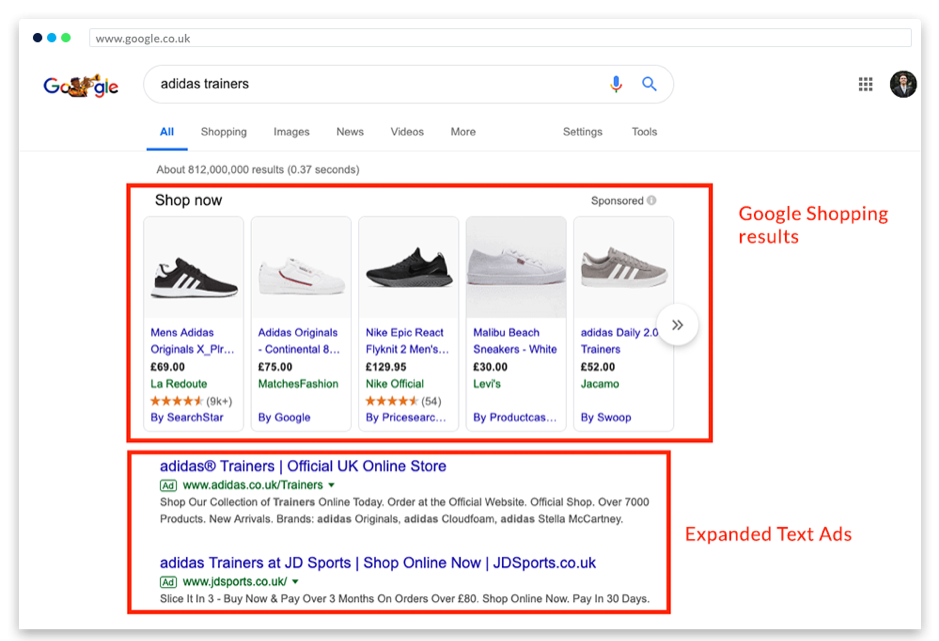
They are offering more advertising space for the individuals who appear at the top of the page, but significantly less for those who don’t.
Prominence of Google Shopping ads also push regular text ads further down the page and generally drive click-through-rates down. In effect, position 1 on the results page may be several inches below the Shopping items at the top. This is part of the reason why Google have decided to get rid of Average Position in favour of new Top and Absolute Top positions.
Changes such as the removal of the right hand column of smaller ads have made the coveted ‘above the fold’ positions more difficult to achieve
Combining less ad space with larger ads and more competitors is a recipe for significantly higher cost-per-click just to stay at the top of the page.
Exact match is no longer exact
It’s no secret Google loves machine learning – it appears they don’t love exact match quite so much.
Firstly, back in 2017, Google modified exact match keywords with ‘close variants’, which expanded the targeting to pick up searches that featured slight deviations from your keyword. Google’s example asserted that ‘running shoes’ and ‘shoes for running’ are intrinsically the same.
As recently as September 2018, Google changed this again to further dilute exact match. Your exact match keywords would then target searches that ‘share the same meaning’ including implied words, synonyms and paraphrasing.
That sounds an awful lot like broad match, doesn’t it?
If you are noticing significant changes in your exact match keyword CPCs year-on-year, check your search query reports. You might find that they are targeting a lot more than they were previously – this can have a negative impact on your Quality Score and raise your CPC if not relevant.
Enhanced CPC limits removed
Enhanced CPC is one of the most commonly used Google Ads bidding strategies, which gives Google’s algorithms freedom to increase your bids when it sees an opportunity to improve conversion rates.
In simple terms, if Google thinks you are bidding too low – it will increase your bids for you. Previously, there was a 30% safety net in place. This was a cap which prevented Google from raising any bids by more than 30% as a way to prevent overspend.
Google changed that in May 2017:
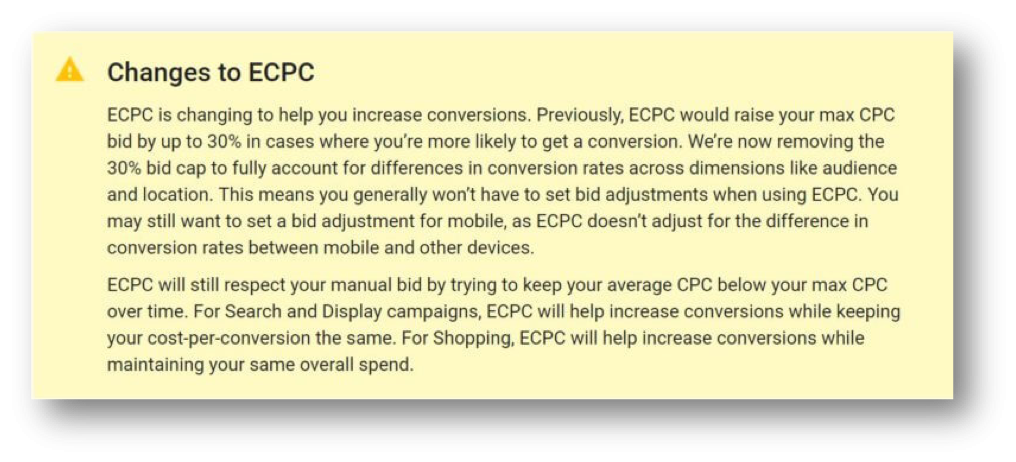
If Google thinks your enhanced CPC keywords could perform better with, say, a 75% bid increase – it will implement the change automatically.
This raises all kinds of potential issues with your CPC and is clearly a factor in the gradual cost increases so many advertisers are seeing.
Other factors which may be increasing your CPC
Before assuming that Google’s algorithms and service updates are driving up your CPCs on their own, it is worth considering whether your keywords and ads could be tweaked to improve things, or if changes you have made may have driven up your average CPCs.
Has your quality score changed?
Quality score has a huge influence over your CPC. Google gives preferential treatment to ads that it sees as more relevant to users. Landing page relevance and ad click-through-rate (CTR) are key variables here.
If your CTR has taken a bit of a nosedive, Google may see this as a signal your ads are not relevant enough, and they will charge you more to appear in the same place.
Demographics, location and schedule
Running your ads 24 hours a day ensures they will always be eligible for impressions (providing you have sufficient budget), but this may not necessarily be the best way to run them. Some hours of the day may be busier or more competitive than others.
If your CPC is rising, try looking at your hour of day reports. You could save money on clicks by reducing your bids during these busy periods and prioritising the cheaper ones. The same can apply to your demographic targeting and your location targeting.
Have your search queries changed?
Check your search term reports for your broad or phrase match keywords. Are they picking up any new searches in large volume that they weren’t before? You may need to add more negative keywords to cut out some of the waste.
Does a rising cost-per-click actually matter?
This is an important question to ask with regards to your strategy. How important is your cost-per-click? Does a lower cost-per-click actually make your campaigns more profitable? There is no clear answer to this.
You should instead try and understand the true value of each click beyond the CPC. For example:
Keyword 1
CPC: £2.00
Conversion Rate: 24.38%
Cost-Per-Action: £8.20
---
Keyword 2
CPC: £1.36
Conversion Rate: 11.28%
Cost-Per-Action: £12.02
The first keyword here is 47% more expensive per click than the second, but the conversion rate is also significantly higher. This means the cost-per-action (or conversion) is actually 31% lower.
Before worrying too much about rising click costs, you should analyse them alongside your key performance indicators – primarily your ROAS (Return On Ad Spend).
Competitive keywords are usually competitive for a reason – they are often ones with a proven data driven record of success for advertisers. Conversely, cheap keywords (excluding brand) may not be as valuable, meaning fewer people bid on them.
Conversion rates vary wildly by industry
Wordstream provides annual industry benchmarks, including how much average clicks cost, along with average conversion rates by industry. Take a look below.
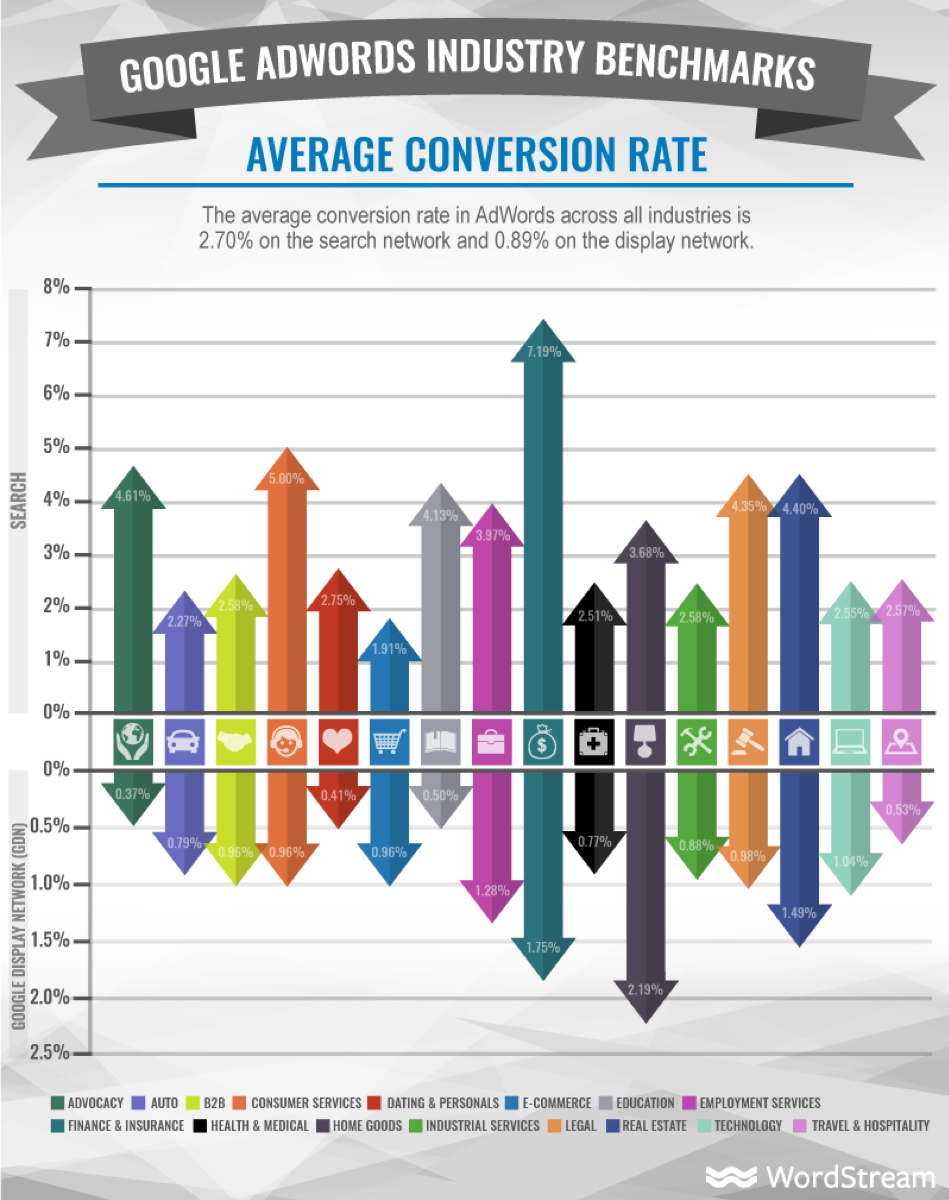
The 7.19% average conversion rate for Finance & Insurance goes a long way to explaining why finance and insurance are among the most expensive keywords to target in the whole of Google.
For such an industry, pursuing lower CPCs may be counter-intuitive and ultimately harmful to your bottom line.
Summary
CPC inflation is here to stay. While Google is making so much revenue by dominating the search market, we can expect more changes to be made which will inflate average click costs – whether deliberate or otherwise.
The trick is to not panic or make any knee-jerk changes to try and arbitrarily save money on click costs.
Instead, try and identify why your click costs have increased first. Then, and most importantly, aim to understand whether rising click costs are as big a problem as you think in relation to your overall advertising goals.
If you require expert support with your next PPC or Paid Media campaign, check out our Paid Media services today.


